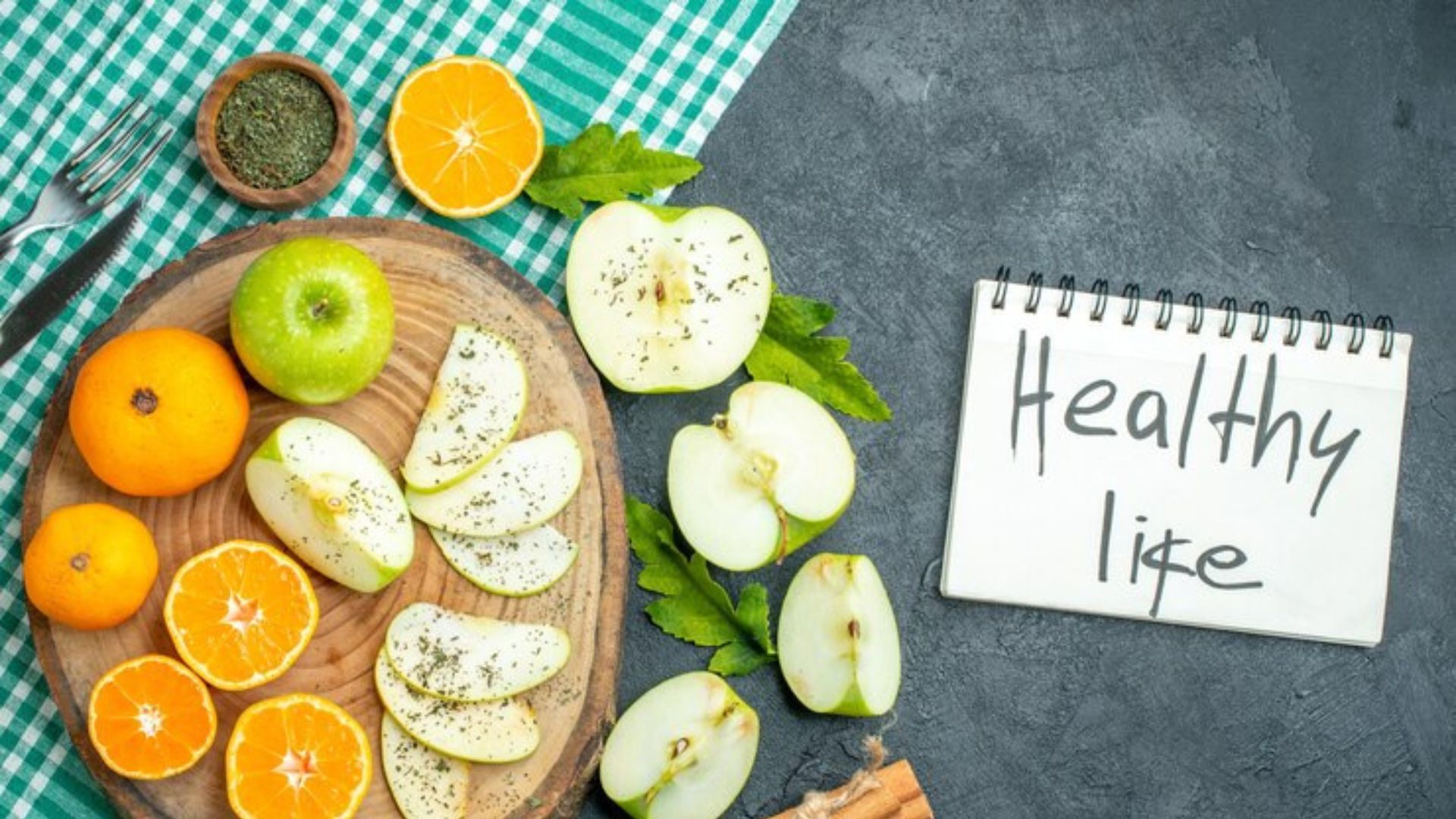The gut plays a crucial role in our overall health. It’s not just responsible for digesting food but also affects the immune system, mental health, and even the skin. Gut health has become an increasingly popular topic, with many people seeking natural ways to improve it. By adopting specific dietary habits, lifestyle practices, and natural remedies, you can promote a healthy gut microbiome and enhance digestion. This article will guide you through practical, natural methods to improve your gut health, boost your immune system, and achieve optimal well-being.
Understanding Gut Health
Gut health refers to the balance of microorganisms, including bacteria, fungi, and viruses, living in the digestive tract. The gut microbiome is responsible for breaking down food, absorbing nutrients, and maintaining the integrity of the intestinal walls. When the gut microbiome is balanced, it promotes good digestion, enhances immunity, and may even support mental health. An imbalance in gut bacteria, known as dysbiosis, can lead to digestive issues, inflammation, and even autoimmune diseases.
Importance of a Healthy Gut
A healthy gut is essential for overall health and wellness. Here’s why maintaining a healthy gut is important:
Digestive Health: The gut is responsible for digesting food and absorbing essential nutrients. When the microbiome is imbalanced, it can lead to digestive discomfort, bloating, constipation, or diarrhea.
Immune System Support: Around 70% of the immune system is located in the gut. A balanced microbiome can help protect the body from harmful bacteria and viruses.
Mental Health: The gut is often called the “second brain” due to the connection between the gut and the brain via the gut-brain axis. Poor gut health has been linked to mood disorders, including anxiety and depression.
Skin Health: Imbalances in the gut microbiome may also contribute to skin conditions like acne, eczema, and psoriasis.
Diet Changes to Improve Gut Health
A healthy diet is one of the most effective natural ways to improve gut health. Eating a balanced diet rich in fiber, probiotics, and prebiotics can help nurture the gut microbiome.
Eat More Fiber-Rich Foods
Fiber is a crucial nutrient that helps regulate digestion and supports the growth of healthy gut bacteria. Fiber-rich foods, such as fruits, vegetables, whole grains, and legumes, provide the food that beneficial bacteria in the gut need to thrive.
Vegetables: Leafy greens, carrots, and broccoli are excellent sources of fiber.
Whole Grains: Foods like oats, quinoa, and brown rice are rich in fiber that supports gut health.
Legumes: Lentils, beans, and chickpeas are great fiber sources that help promote digestive health.
Include Probiotic Foods
Probiotics are live beneficial bacteria that support gut health. Consuming probiotic-rich foods can help replenish healthy bacteria and restore balance to the gut microbiome.
Yogurt: Choose plain, unsweetened yogurt with live and active cultures for a good source of probiotics.
Kefir: A fermented dairy product similar to yogurt, kefir is a great way to introduce probiotics into your diet.
Sauerkraut: Fermented cabbage provides beneficial bacteria that support gut health.
Kimchi: A spicy Korean side dish made from fermented vegetables, kimchi is another excellent probiotic-rich food.
Add Prebiotics to Your Diet
Prebiotics are non-digestible fibers that feed and nourish the beneficial bacteria in the gut. By including prebiotics in your diet, you can help promote the growth of healthy gut bacteria.
Garlic: Contains prebiotics that support the growth of beneficial gut bacteria.
Onions: Rich in prebiotics, onions help foster the growth of probiotics in the gut.
Bananas: Bananas are not only a good source of fiber but also contain prebiotics that support gut health.
Reduce Processed Foods
Processed foods, especially those high in sugar, unhealthy fats, and artificial additives, can disrupt the balance of bacteria in the gut. Reducing the intake of these foods can help maintain a healthy gut microbiome.
Limit Sugary Beverages: Sugar feeds harmful bacteria in the gut, so reducing your intake of sugary sodas, juices, and processed snacks is essential.
Avoid Artificial Sweeteners: Artificial sweeteners have been shown to disrupt the gut microbiome, so it’s best to avoid them when possible.
Lifestyle Changes to Promote Gut Health
In addition to dietary changes, certain lifestyle practices can help improve gut health naturally. A combination of healthy habits can contribute to a balanced and flourishing microbiome.
Stay Hydrated
Drinking plenty of water throughout the day supports the digestive process and helps prevent constipation. Adequate hydration is essential for maintaining healthy bowel movements and supporting the gut’s ability to process food.
Manage Stress
Chronic stress can have a negative impact on gut health. The gut-brain axis means that stress can directly affect the digestive system, leading to issues like bloating, gas, or irritable bowel syndrome (IBS). Practicing stress management techniques, such as yoga, meditation, or deep breathing exercises, can help maintain gut health.
Get Enough Sleep
Sleep is vital for overall health, including gut health. Poor sleep has been linked to gut imbalances, leading to digestive issues and other health problems. Aim for 7-9 hours of quality sleep each night to support your gut and overall well-being.
Exercise Regularly
Regular physical activity has been shown to promote a healthy gut microbiome. Exercise can help improve gut motility, support a diverse microbiome, and reduce inflammation. Aim for at least 30 minutes of moderate exercise most days of the week.
Avoid Unnecessary Antibiotics
While antibiotics are essential for treating bacterial infections, overuse or misuse of antibiotics can disrupt the balance of gut bacteria. Only take antibiotics when prescribed by a healthcare professional, and avoid using them for viral infections like the common cold.
Natural Remedies for Gut Health
There are various natural remedies and supplements that can support gut health. While they should not replace a balanced diet or medical advice, these natural options can be helpful for maintaining a healthy gut.
Apple Cider Vinegar
Apple cider vinegar (ACV) is known for its potential to improve digestion. It may help balance stomach acidity, support the breakdown of food, and reduce bloating. Try drinking a teaspoon of diluted apple cider vinegar before meals to support digestion.
Ginger
Ginger is a natural anti-inflammatory and digestive aid. It can help alleviate bloating, indigestion, and nausea. You can consume ginger tea or add fresh ginger to meals for digestive benefits.
Aloe Vera
Aloe vera has been traditionally used to soothe the digestive tract. It can help reduce inflammation and support the healing of the gut lining. Aloe vera juice, when consumed in moderation, can support gut health.
Bone Broth
Bone broth is rich in collagen, gelatin, and amino acids that support gut health. These nutrients can help repair the intestinal lining, reduce inflammation, and promote a healthy gut. Consuming bone broth regularly can provide digestive support.
Conclusion
Improving gut health naturally is not about quick fixes but about adopting long-term, sustainable habits that support the gut microbiome. A balanced diet rich in fiber, probiotics, and prebiotics, combined with stress management, regular exercise, and adequate sleep, can help maintain a healthy gut. By making these changes, you can enhance digestion, boost your immune system, and promote overall wellness. Remember that everyone’s gut is unique, so finding what works best for you may require some trial and error. If you have persistent digestive issues, it’s important to consult a healthcare professional.
ALSO READ:Fresh Fruit Desserts Ideas: Creative & Delicious Ways to Enjoy Nature’s Sweetness
FAQs
How long does it take to improve gut health?
The time it takes to improve gut health can vary depending on individual factors such as diet, lifestyle, and overall health. Typically, you may begin to notice improvements within a few weeks of making dietary and lifestyle changes, but it can take several months to fully restore gut health.
Can probiotics help with gut health?
Yes, probiotics can help improve gut health by restoring the balance of beneficial bacteria in the gut. Regularly consuming probiotic-rich foods like yogurt, kefir, and kimchi can help maintain a healthy gut microbiome.
Is it possible to improve gut health naturally without medication?
Yes, it is possible to improve gut health naturally by making dietary changes, managing stress, exercising, and getting adequate sleep. Natural remedies and supplements can also support gut health, but they should complement a healthy lifestyle, not replace it.
What are the best foods for gut health?
The best foods for gut health include fiber-rich foods such as fruits, vegetables, and whole grains, as well as probiotic-rich foods like yogurt, kefir, and fermented vegetables. Prebiotic foods like garlic, onions, and bananas also help nourish beneficial bacteria in the gut.
How can stress affect gut health?
Stress can disrupt the balance of bacteria in the gut and affect digestive processes. Chronic stress has been linked to conditions like irritable bowel syndrome (IBS) and other digestive issues. Managing stress through relaxation techniques can help support gut health.







